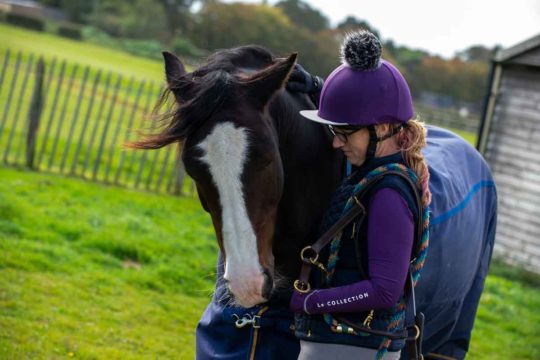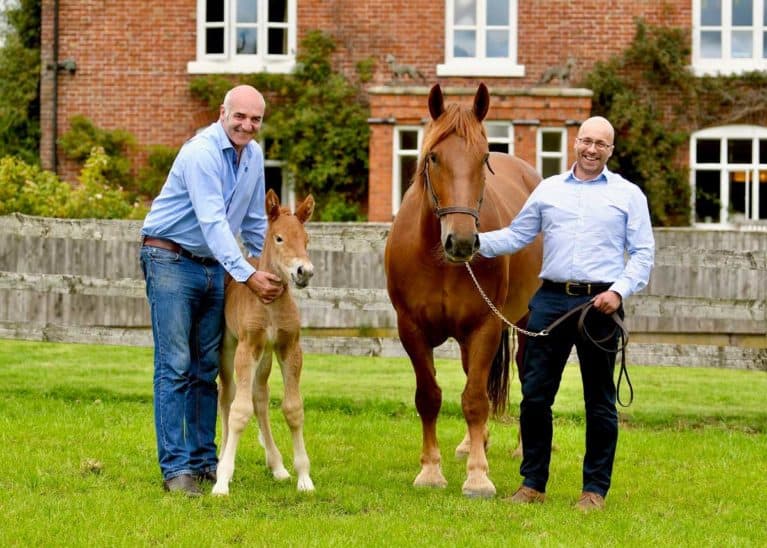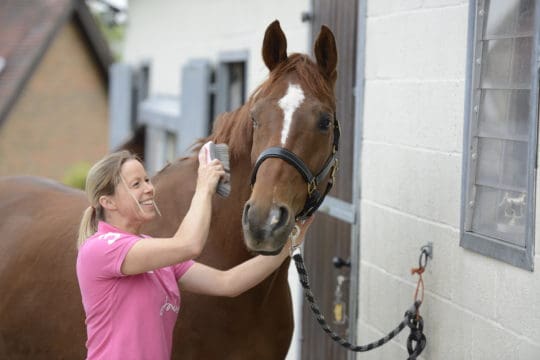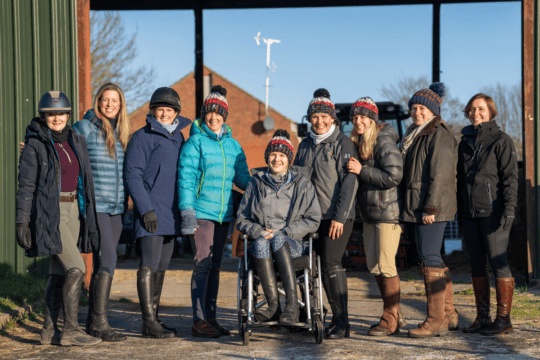
Most Read Articles

A Suffolk Punch mare has given birth to a healthy filly following the use of sex-sorted sperm to determine the gender of the foal
With an innovative approach, sex-sorted sperm has been used for the first time to support the survival of rare breeds, as a Suffolk Punch mare gave birth to a healthy filly. Every Suffolk Punch filly born is vital to the survival of this rare breed, as just 72 mares remain in the UK – and fewer than 300 in the world.
Tullis Matson, owner and managing director of Stallion AI Services, is a supporter of the Rare Breeds Survival Trust, and in 2019 saw the opportunity to make use of advancement in the sex-sorting of equine semen to help keep rare breeds alive. “To be able to use our reproduction expertise in this way, to help preserve an irreplaceable part of our magnificent heavy horse heritage, is something we’ve been working towards for many years,” said Tullis. “The challenges have been great and many but watching the birth of this beautiful, healthy filly foal was a truly magical experience.”
This project was carried out with Cogent and Sexing Technologies and uses specialist equipment to sort the semen before it’s used in insemination, based on the difference in DNA content between X and Y bearing spermatozoa. The mare, Ruby, is owned by Nottingham Trent University, and the stallion, Holbeach Iggy, by Mike Clarke of Holbeache Farm in Suffolk. The pair were carefully matched as part of a project that uses pedigree to breed small populations with a lower risk of inbreeding and genetic decline.
Christopher Price, Chief Executive of the Rare Breed Survival Trust, said: “This is tremendous news for anyone concerned with the conservation of our native equines. The most effective way of increasing the population size of this very rare breed is by increasing the number of fillies being born. The project demonstrates the viability of using new techniques for selecting female foals in order to increase the breeding population much more rapidly than could be achieved through relying on traditional methods. We hope it will prove to be a model for more projects in the future.”
With this technology still very new, Twemlows Stud Farm was selected to ensure the mare was taken good care of and her insemination carefully planned and monitored. She initially scanned as not in foal in June, but following a second attempt and another cycle, Ruby was found to be in foal in August 2019.
Dr Gareth Starbuck, Head of Animal and Equine Sciences in Nottingham Trent University, said: “The birth of this foal marks a major step towards securing the future of the Suffolk Punch and all other rare animal breeds. We’re overjoyed that the 11-month wait has resulted in success and I want to thank everyone who has played a part in it. It’s been a pleasure to work with the Rare Breeds Survival Trust to further develop the process of mare and stallion matching among rare breeds.”
Tullis Matson said: “The project required significant financial support and we were incredibly fortunate that all involved parties donated both time and resources and we received substantial financial backing from both the Suffolk Horse Society and The Rare Breed Survival Trust, without which we would have been unable to continue. Eleven months on we’re delighted to announce the birth of a healthy filly Suffolk Punch foal, whose birth is a beacon of hope not just for the Suffolk Punch horse, but for all critically endangered breeds currently nearing extinction.”
For more information, visit stallionai.com






